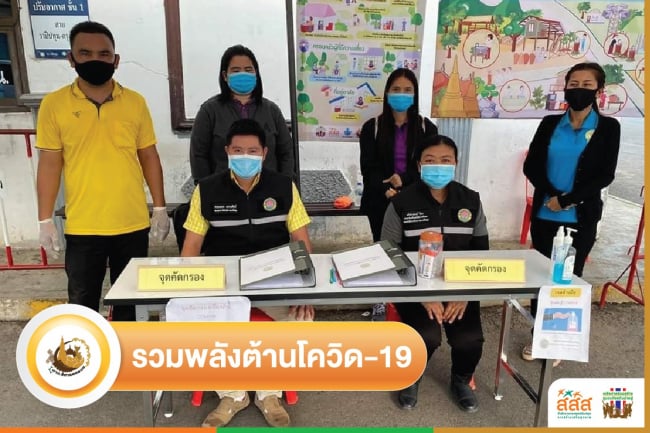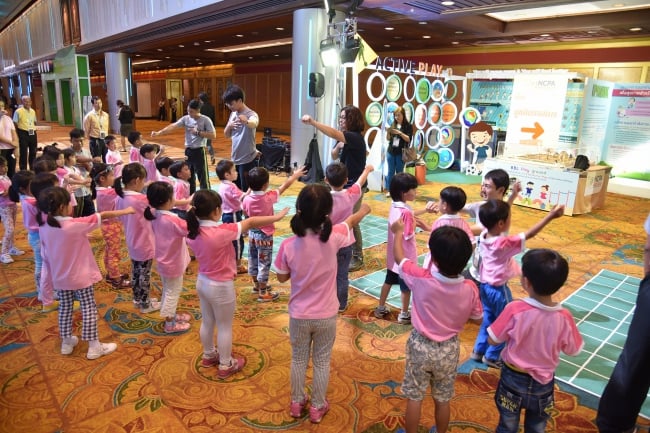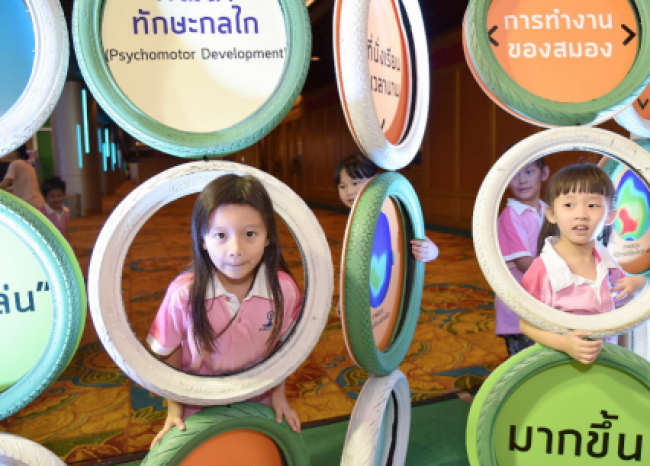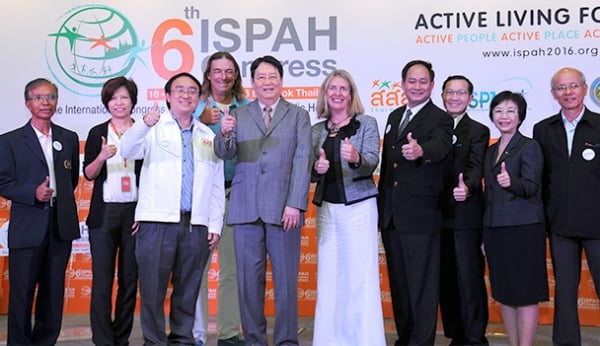HEALTHY COMMUNITY STRENGTHENING PLAN

HEALTHY COMMUNITY STRENGTHENING PLAN
The most recent survey conducted in 2013 found that the rate of cigarette use among members of the Thai population age 15 and older decreased to 19.94%. Male smokers, the largest group of smokers in Thailand, showed a greater trend in reduced smoking rates than females. Similarly, children and youth (ages 15-24) also showed a downward trend in smoking rates. The survey also found that the average age Thai’s start smoking decreased from 18 to 17 years of age. Therefore, children and youth require special attention to prevent the emergence of a new generation of smokers.
At present, ThaiHealth has over 2,000 local administrative organizations that are part of its local community network. They account for one out of three total local administrative organizations nationwide. Random opinion surveys from 2,262 community members from ThaiHealth’s Pleasant Local Community Network showed more than 80% of community networks are strong enough to create change agents and promote participation.
In addition, there are a number of local administrative organizations that are strong enough to manage learning processes outside of their networks. Work implementation in the future will be driven under the issue of sustainable agriculture, safe food, systems to care for elderly people, and learning among children and youth.
Focus Areas of Plan
1) Enhancements in capacity within local communities to expand the current level of knowledge to manage health, reduce health problems, and integrate new methods into the work culture, local administrative organizations, village development committees, social institutions, social groups, community organizations, and local networks.
2) Development of information systems to stimulate local communities and evaluate the progress of health management in local communities. National-level public policies are also driven and linked to main driving systems and mechanisms, especially at the Department of Local Administration, Ministry of Interior.
3) Support academic institutions and organizations to become involved in learning about local community practices, researching and evaluating local knowledge and wisdom derived from the actual experiences of each community.
4) Support activities that aim to health risk factors and increase health-promoting factors while also integrating into community management systems through joint implementation with ThaiHealth work plans. Transforming knowledge sets into practice through area-based development in communities and local areas.
5) Integration of sufficiency economy principle into community self-management systems, with support from local administrative organizations to strengthen communities in managing risks and crises.
MEDIA
- HEALTHY COMMUNITY STRENGTHENING PLAN

31 March 2563
1,636
Amidst the crisis of CoVid-19 pandemic that adversely affects the entire planet, Thailand, one of the hotspots in concern, realised the height of this worldwide threat and strive to conduct monitoring, vigilance, and screening within the nation to cope with the upward trend of the infection. In order to quickly put the society in control in swift motion, the Municipality of Wapi Pathum – one of ThaiHealth’s healthy community network and one of Thailand’s communities that serves as the centre of the region where people commute to and from to conduct businesses – has initiated a healthy community project and strict health monitoring with the following measures: Urged public awareness in how to live in the community with people of no risk and people with risk of infection. Provided mobile washbasins made from recycled waste to give people places to wash their hands on a regular basis. Installed a newly-invented innovation of “Full-Body Treatment Chamber for CoVid-19” in the community with the use of mild acidic water with quality of eradicating 99% of bacteria, microbes, and viruses in place of isopropyl alcohol. These are the kind of strength we see in this healthy community of Wapi Pathum Municipality, supported by ThaiHealth’s budget to reduce risk factors and increase health factors. The same project is also conducted in 15 other...

22 June 2559
1,565
ThaiHealth has collaborated with the Physical Activity Research Centre (PARC) in organising the 1st National Conference on Physical Activity to call on Thai people to move their bodies and to kick idling habit, with a target of 80% more physical activities within the year 2021 when Thailand hosts the 6th National Conference on Physical Activity again. Themed under “Active Living For All”, the National Conference on Physical Activity, the first of its kind, organised during November 17 to 18, 2015, at Queen Sirikit National Convention Centre, ended with fruitful results thanks to collaboration from various organisations e.g. the Department of Health, Ministry of Public Health, and Chulalongkorn University. Assoc Prof Wilasinee Phiphitkul, Senior Director of ThaiHealth, said that the organisation had collaborated with all parts of the society to work on increasing the rate of physical activities and promoting health spaces. According to 2015 statistics jointly conducted with the Institute for Population and Social Research, Mahidol University, it has found that physical activities for Thai have increased from 66.3% in 2012 to 71.6% in 2015, representing a 7% increase. The increase is not considered high compared to the average of 13.42 hours of idling behaviours among Thai people as opposed to 1.57 active movements in a day. Most of the collected idling activities are staring at computer screens,...

31 May 2559
10,075
Thai people have changed a lot in the past years. They have now become idle people who dislike walking, stick to their easy comfort, sitting idle in front of television or swiping their mobile phones. It’s safe to say that they are more inclined to idling than moving about. Echoing the recent study conducted by the Institute for Population and Social Research of Mahidol University, the research has found that only 67.6% of Thai people are engaged in Physical Activity (PA), and that the number of 6- to 14-year-old youngsters who are engaged in physical activity decreased continuously – the number corresponding with the increasing rate of obesity. In the upcoming public forum for physical activity towards Bangkok Declaration and Public Policy as part of the “6th ISPAH Congress: International Congress on Physical Activity and Public Health, jointly organised by Thai Health Promotion Foundation (ThaiHealth), the International Society for Physical Activity and Health (ISPAH), the Ministry of Public Health (MOPH), Bangkok Metropolitan Administration (BMA), and World Health Organization (WHO), the forum will be held on November 16-19, 2016, at Queen Sirikit National Convention Centre (QSNCC) with 800 anticipated number of participants from around the world. Speaking about the congress, Dr Udomsin Srisaengnam, head of the ISPAH organising committee, said that ThaiHealth had played an important role...

03 April 2558
3,285

